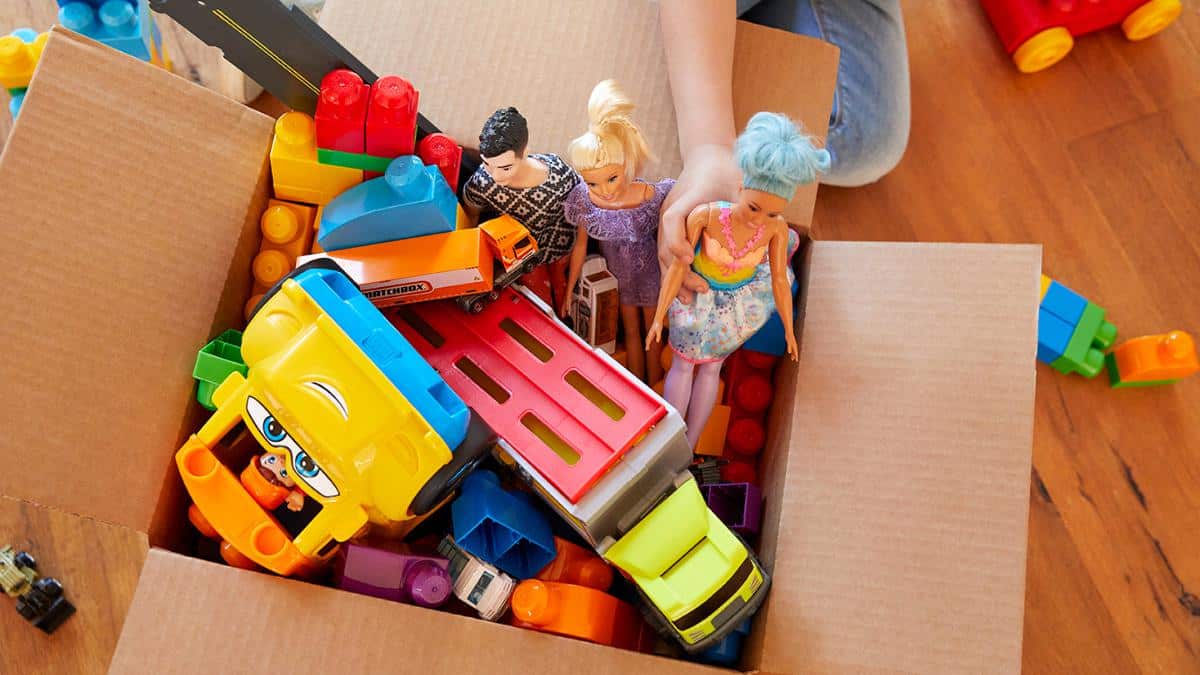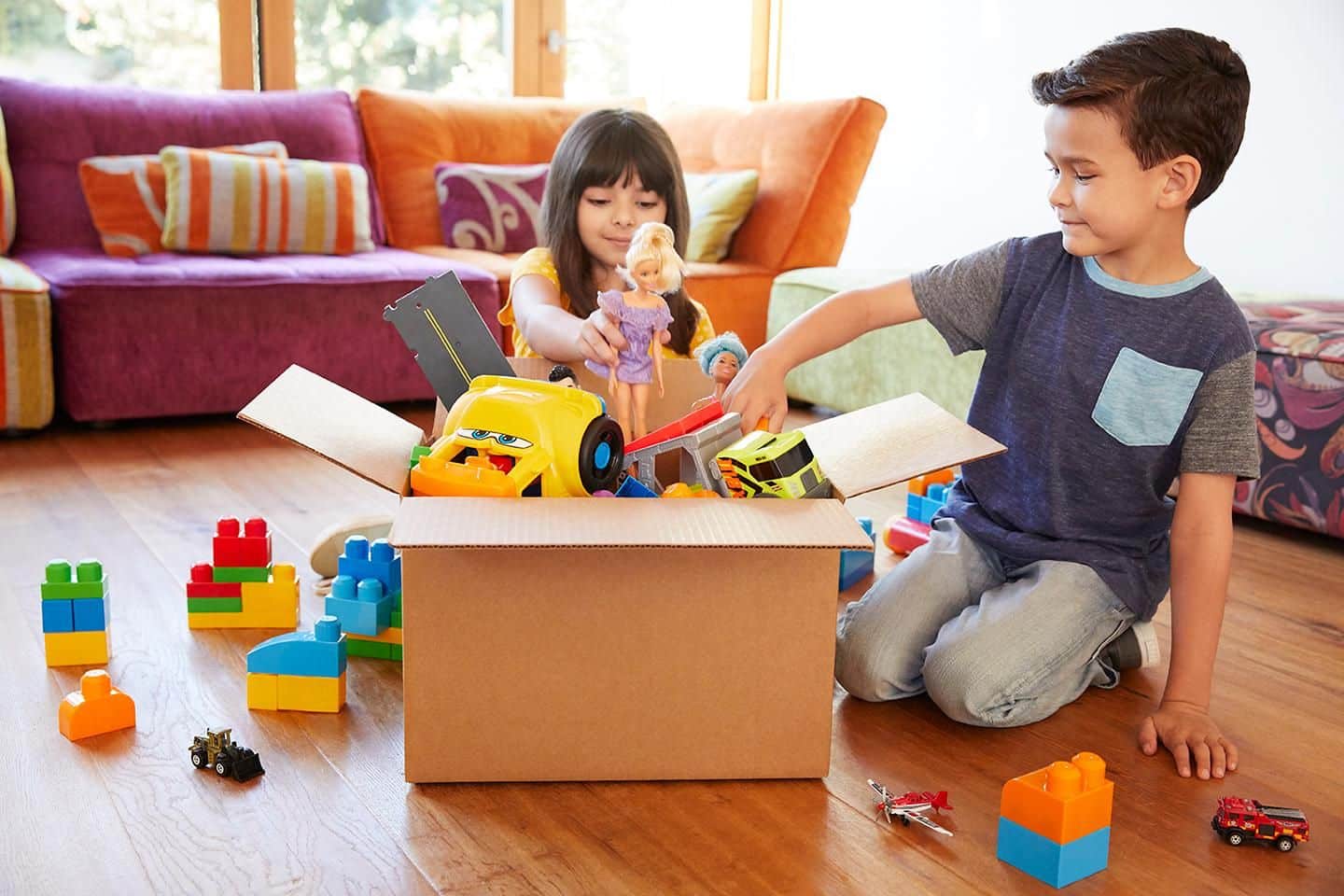

Mattel, the maker of Barbie, Matchbox and MEGA toys, wants your old toys. The 76-year-old toy company has launched a pilot program to recover and recycle materials in certain old toys into future Mattel products, creating a more circular model with sustainability in mind.
“Mattel PlayBack,” as the program is called, is a “toy takeback” program that “enable[s] families to extend the life of their Mattel toys once they are finished playing with them,” a company press release said. The idea is to offer parents “guilt-free solutions for toys that have reached the end of their useful life,” the program webpage said, and to ensure that “fun comes full circle.”
To participate, consumers can visit Mattel.com/PlayBack to print out a free shipping label. Once Mattel receives the old toys, they are sorted and separated by material type. What can be processed and recycled is, and what cannot is either downcycled into other plastic products or converted from waste to energy, the press release noted.
“At Mattel, we are committed to managing the environmental impact of our products,” Mattel’s global head of sustainability Pamela Gill-Alabaster said in the press release. “The Mattel PlayBack program helps parents and caregivers ensure that materials stay in play, and out of landfills, with the aim to repurpose these materials as recycled content in new toys. It is one important step we’re taking to address the growing global waste challenge.”
CNN reported that of all the plastic ever created, only 9 percent has been recycled. The majority ends up in landfills or in the natural environment like the ocean, where they can take hundreds of years or longer to break down. Unfortunately, plastic toys are no different. A recent study found that LEGO bricks, which are made of plastic, can survive up to 1,300 years in the ocean. In that time, they can cause a lot of harm to marine life and fragile ecosystems.
One of the most frequently recommended ways to combat the plastic pollution crisis is to curb the use of new plastics and to recover and recycle what plastic already exists. Because of this, conscientious actors in the play space are beginning to create toys out of new materials and/or to find ways to recycle and upcycle old toys.
Mattel Playback will begin by accepting three brands of toys for recycling: Barbie, Matchbox and MEGA. The initiative has begun in the U.S. and Canada. The plan is to add more brands in the future and to extend to France, Germany and the United Kingdom through partnerships with third-party recycling partners.
“We get to keep these valuable materials out of a landfill and have the opportunity to learn from the circular model,” Gill-Alabaster told CNN.
For ineligible toys, including non-Mattel brands, that are in good condition, one option is to pass them on to friends or donate toys to charities, USA Today reported.
PlayBack is Mattel’s latest step towards increasing the overall sustainability of its products. The company previously committed to using 100% recycled, recyclable or bio-based plastic materials across all of its products and packaging by 2030, CNN reported. In line with that goal, the company introduced new toy innovations like baby blocks made of bio-based plastics and a fully recyclable UNO deck, the press release said. Mattel also announced the Matchbox Tesla Roadster, a die-cast vehicle made from 99 percent recycled materials and certified Carbon Neutral, the release added.
Mattel is not the only toy manufacturer trying to improve its processes and products. Another CNN article reported that the pandemic created an “unanticipated surge” in the demand for toys because parents were stuck at home with their children. The news report noted how large toy companies are meeting the new demand with more environmentally friendly products, packaging and programs.
For example, in early 2020, McDonald’s in the UK announced that their Happy Meals will be plastic toy-free. Children will have a choice, instead, for a soft toy, a paper toy, or a book. The fast-food chain also will organize “toy amnesty” programs where children can recycle old toys to be made into play equipment for Ronald McDonald House Charities.
Additionally, according to Forbes, all of the “Big Three” toymakers — Mattel, Hasbro and Lego — have “greened up” their products to align with the environmentally-conscious values of millennial and Gen Z parents. The news reported cited a May 2019 trade group report that recommended biodegradable toys that can be composted in residential compost bins, neighborhood toy exchanges, and toy banks to collect donations for children in need.
“Toy companies need to recognize and respond to a fast-rising movement against plastics that is shaping consumer behavior,” the report stated, Forbes reported.
Mattel says their PlayBack program is designed to teach kids about the values of recycling and sustainability in the context of their own toys, while recovering valuable materials for reuse in future toys and products. Mattel

 233k
233k  41k
41k  Subscribe
Subscribe 
